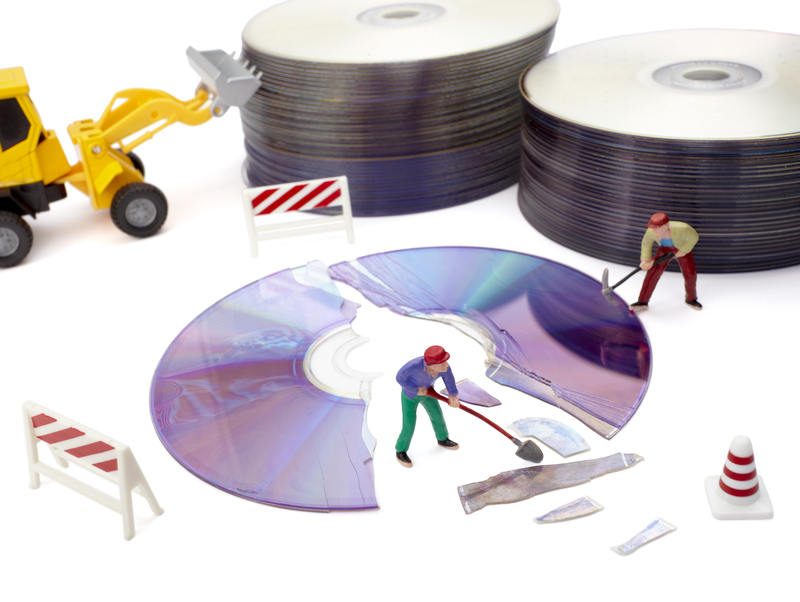Maximizing Savings When Dealing with Bulky Waste and Large Trash
In today’s world, the proper disposal of bulky waste and large trash is more important than ever. Whether you are a homeowner clearing out a garage, a business owner with redundant office furniture, or a landlord overseeing a major cleanout, the challenge of removing substantial items can be daunting—and expensive. Fortunately, with the right approach, you can maximize savings when handling oversized debris and responsibly manage these materials.
Understanding Bulky Waste and Large Trash
Before exploring cost-saving strategies, it’s important to understand what qualifies as bulky waste and how it differs from ordinary trash. Bulky waste typically includes items too large for standard collection bins, such as:
- Old furniture (sofas, mattresses, wardrobes)
- Household appliances (refrigerators, washing machines)
- Large electronics (TVs, computers, printers)
- Construction debris and building materials
- Yard waste (branches, tree stumps)
Proper disposal is crucial due to environmental, legal, and cost implications. Making informed decisions is key to reducing costs while ensuring responsible disposal.

Why Disposing of Bulky Waste Can Be Expensive
Bulk waste removal often incurs higher charges than regular trash due to several factors:
- Special Handling: Oversized items require manual labor and specialized equipment.
- Transportation: Large, heavy loads fill up vehicles quickly or require additional trips.
- Landfill Fees: Bulk items may incur higher dump fees due to their size and weight.
- Local Regulations: Many areas strictly regulate what can be left for curbside collection, resulting in potential fines if rules are not followed.
These challenges highlight the need to explore affordable alternatives for bulky waste disposal that comply with local regulations and environmental best practices.
Top Money-Saving Strategies for Handling Bulky Waste
Below, we dive into proven methods to maximize your savings while dealing with large-scale trash removal. With a combination of planning, resourcefulness, and leveraging local resources, you’ll keep both your wallet and the planet in mind.
1. Plan Ahead and Minimize Waste
The best start to saving money is minimizing the volume of bulk waste you need to get rid of. Before hauling everything to the curb or hiring a removal service:
- Evaluate What Can Be Kept or Repurposed: Sometimes, furniture or appliances can be repaired or repurposed. Get creative with upcycling projects!
- Consolidate Items: If you’re organizing a community clean-up or moving multiple items, combining efforts with neighbors can lead to shared savings.
- Disassemble When Possible: Breaking items down into smaller components can make them easier (and sometimes cheaper) to dispose of.
2. Leverage Municipal Bulk Waste Collection Programs
Most cities and towns offer some form of curbside bulk waste pickup on set days or by appointment. This is often the most economical (and sometimes free) means of disposing of large trash.
- Check your local government website for rules, pickup schedules, and acceptable items.
- Avoid fines by verifying the limits and prohibited items before placing anything at the curb.
- Book your appointment early—slots may fill up quickly during spring cleaning or moving season.
This can be a huge money-saver, especially for disposals allowed as part of your regular service fees.
3. Donate Usable Bulky Items
Many large items like sofas, tables, and appliances are still in good condition and can be donated. Donating has both financial and environmental benefits:
- Organizations such as Goodwill, Habitat for Humanity Restore, or The Salvation Army may pick up large items for free.
- You may qualify for a tax deduction on your donation.
- Reducing landfill waste helps support a circular economy.
Always ensure items are clean and in working order before arranging donation.
4. Sell or Give Away Bulky Waste
You could turn your trash into cash by selling large items online. Websites and apps such as:
- Facebook Marketplace
- Craigslist
- OfferUp
- Nextdoor
make it easy to connect with people seeking secondhand furniture, appliances, or building materials. Even if you don’t make money, giving them away for free saves on disposal costs.
5. Utilize Recycling Centers and Donation Drop-Offs
Many communities are equipped with recycling centers and materials recovery facilities that accept large, hard-to-dispose-of items, often for a nominal fee (or none at all). Items typically accepted:
- Scrap metal (bed frames, appliances)
- Electronic waste (TVs, computers)
- Certain plastics and wood
Call ahead to confirm acceptance policies and fees, and sort your items to streamline the drop-off process.
6. Rent the Right Dumpster or Junk Removal Service
For large-scale cleanouts, such as during renovations or moving, dumpster rental or a professional junk removal service may be necessary. Save money by:
- Comparing quotes from at least three local companies
- Opting for the correct dumpster size—too large and you overpay, too small and you pay for additional hauls
- Being clear about weight limits to avoid extra fees
- Scheduling during promotions or off-peak times
If enlisting a junk removal company, ask about whether they handle sorting, recycling, and donation, which can further increase your savings and divert material from landfills.
7. Host a Community Bulk Waste Event
Coordinate with neighbors, tenants, or your HOA to organize a shared bulky waste pickup or disposal event. Large haulers may offer volume discounts, and collaborating can allow everyone to split costs and take advantage of the best large trash disposal services.
8. DIY: Self-Haul to the Local Landfill
For those with access to a truck or trailer, personally hauling bulk items to the landfill or transfer station can be the most cost-effective approach. Tips:
- Check for residency discounts or special drop-off days
- If fees are by weight or volume, pack items as compactly as possible
- Bring identification and proof of residency
9. Avoid Hidden Fees and Fines
Cities often levy fines for illegally dumped bulky items or improper disposal. Avoid these costly mistakes by:
- Understanding your community's disposal regulations
- Following posted schedules for bulky trash pickups
- Avoiding hazardous materials in your pile
10. Reuse and Repurpose What You Can
One person’s junk is another’s treasure. Transform that old door into a headboard, or convert wooden pallets into garden furniture. Repurposing not only saves you money on disposal but fosters creativity and the DIY spirit.
Bulky Waste Disposal: Environmental and Legal Considerations
Maximizing savings shouldn’t come at the expense of the environment or legal requirements. Many large items contain materials that can contaminate soil and water or pose safety hazards. For instance:
- Refrigerators and AC units contain refrigerants that are hazardous if improperly disposed of
- Electronics may contain mercury or lead
- Treated wood and mattresses can be challenging for landfills to process
When you handle large trash responsibly, you avoid fines and make sure materials are directed to the appropriate recycling or treatment facilities.
Pro Tips for Maximizing Savings on Bulk Waste Disposal
- Schedule During Free Pickup Days: Keep an eye out for city-sponsored clean-up events.
- Negotiate: Junk haulers may offer better deals for flexible timing or grouped pickups.
- Join Local Online Groups: Community boards often have information on free disposal days or communal dump runs.
- Deconstruct Carefully: Taking appliances apart can help you salvage valuable metals (like copper) for cash at a recycling center.

Frequently Asked Questions (FAQs) on Large Trash Removal
How can I get rid of bulky waste for free?
Check if your city offers regular free bulk waste pickup, community clean-up events, or free dump days. Donations to charities and some recycling centers also accept items at no charge.
What items are classified as bulky waste?
Items typically include mattresses, sofas, bed frames, appliances, carpeting, packing material, and large electronics. Rules may vary by municipality, so consult your local guidelines.
What’s the cheapest way to dispose of a couch or mattress?
First, try to sell, donate, or give away the item online. Municipal bulk pickup days are a cost-saving second option. Only consider paid haulers as a last resort.
Conclusion: Take Charge and Save Big on Bulky Waste Disposal
Handling bulky waste and large trash doesn’t have to break the bank. By planning ahead, leveraging free and low-cost municipal services, donating, reselling, and recycling, you can maximize savings while minimizing environmental impact. Always follow your local regulations and stay informed about the resources in your area. With a thoughtful, strategic approach, dealing with large-scale waste becomes manageable, sustainable, and affordable.
Remember: The key to saving money on bulky waste removal is a combination of creativity, community engagement, and knowledge of local options. Make your next big cleanup both cost-effective and eco-friendly!
